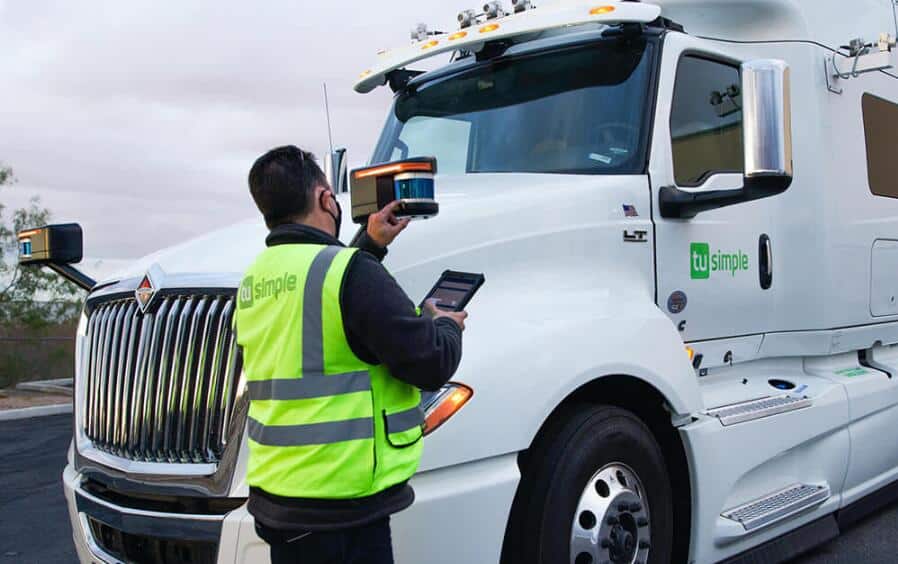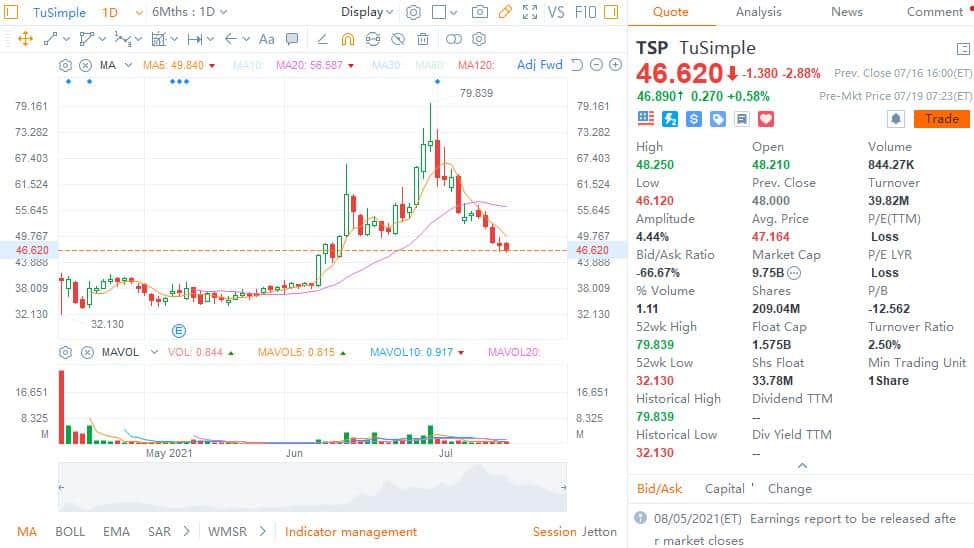Chinese self-driving truck company TuSimple recently launched its vehicle-building project Turing Auto and established two subsidiaries for this purpose, according to local media outlet Auto-Bit.
Turing Auto will start with cargo vans and gradually move into the heavy-duty truck category, with the goal of building vehicles that are more compatible with self-driving fleet operations and lower in cost, the report said.
Turing Auto is seeking external financing, with TuSimple making a strategic investment in the former.
The report cites a person familiar with the matter as saying TuSimple chose to build vehicles because "vehicles in the US are expensive and slow to build."
Today's self-driving tests use commercial vehicles based on conventional fuel vehicles, which are slow and expensive for traditional commercial vehicle OEMs to develop new products.
Turing Auto will start with new energy commercial vehicles and build vehicles locally in China that are designed from the hardware and software for operational development, with the initial batch of vehicles likely to be exported primarily to the US market, the report said.
Another source said TuSimple is mainly testing in China and has not formed a large-scale fee operation project, while building vehicles will bring more space and imagination to play.
There are difficulties in landing L4 self-driving trunk logistics in China because there is no clear legal permission to do so.
The report says Turing Auto is in talks with Chinese commercial vehicle OEMs, and the first vehicle could be based on the OEM's existing new energy commercial vehicle platform, with the first vehicles to be delivered in 2023.
Turing Auto wants to start by building a cargo van that makes urban delivery easier, safer and more efficient, with automated assisted driving features and software for commercial fleet operations, the report said.
The next phase will see Turing Auto build a heavy-duty truck with L2 automated assisted driving and L4 autonomous driving capabilities, the report said.
TuSimple went public in the US on April 15, pricing its IPO at $40 per share, and the company's shares hit an all-time high of $79.839 on June 30, though they have since pulled back to $46.62.

